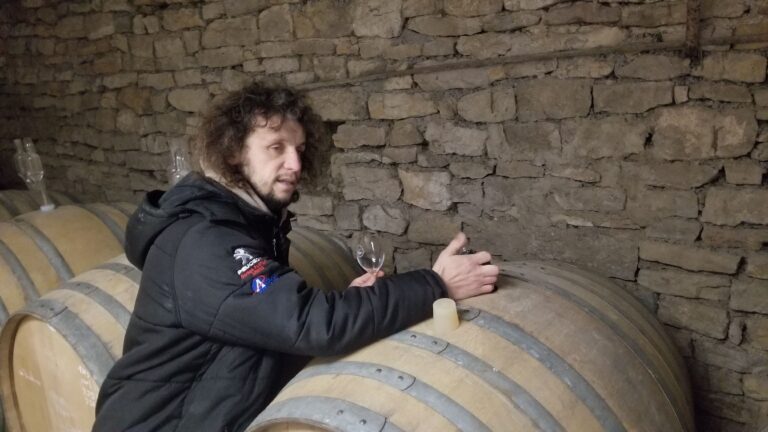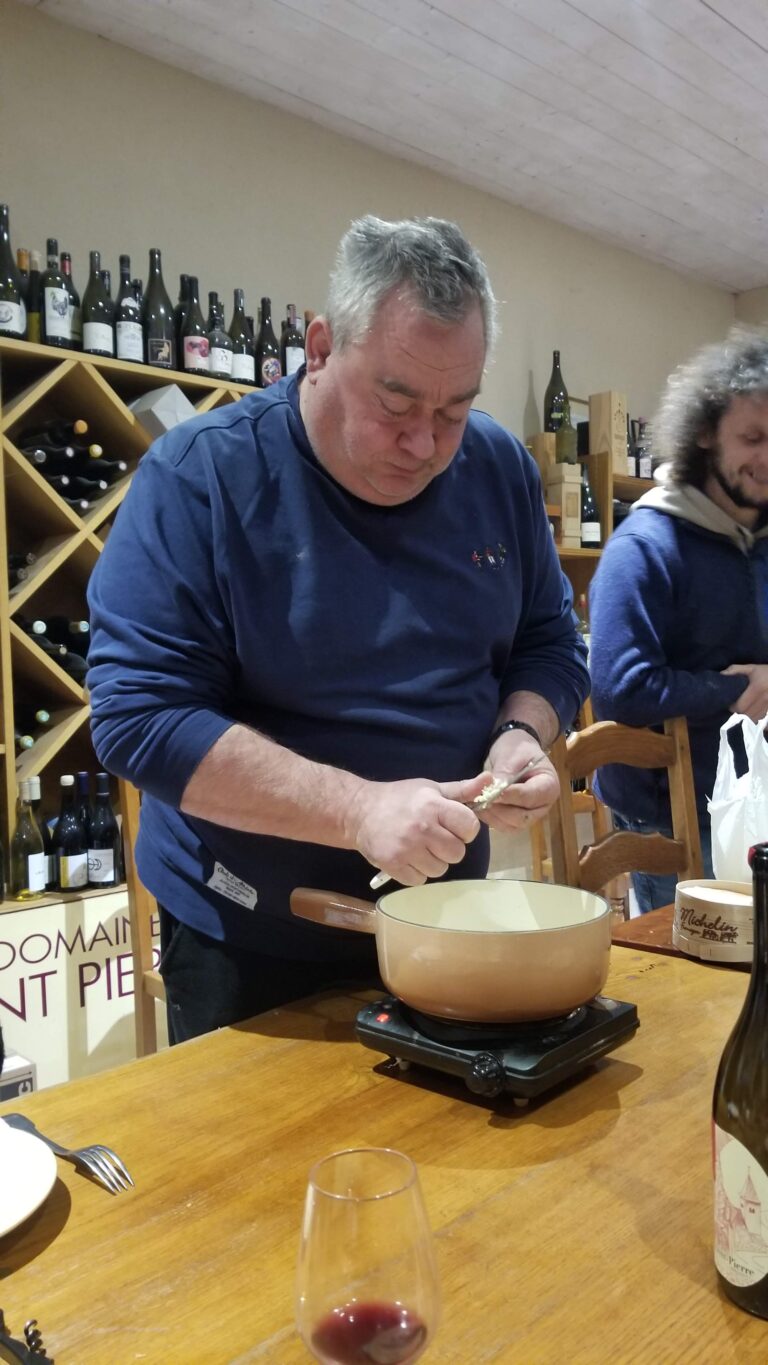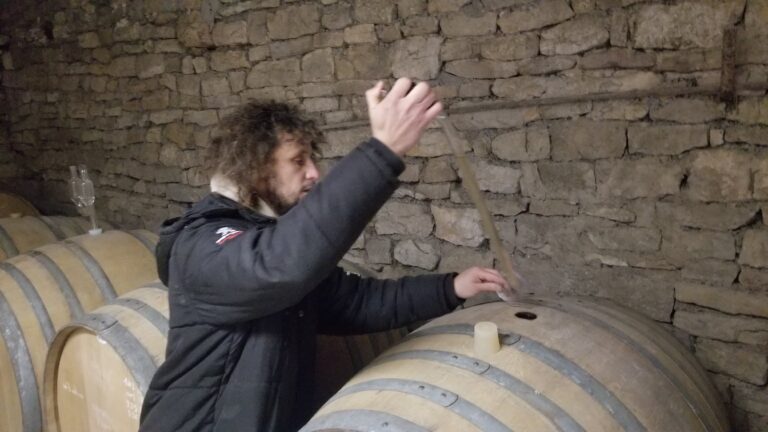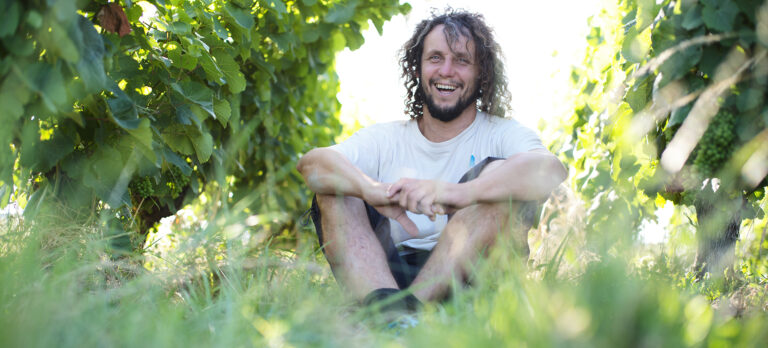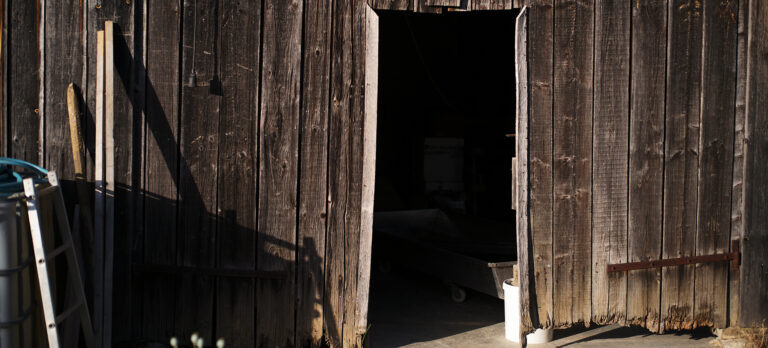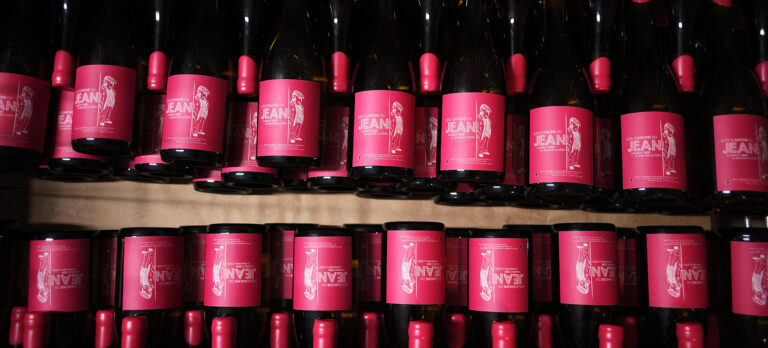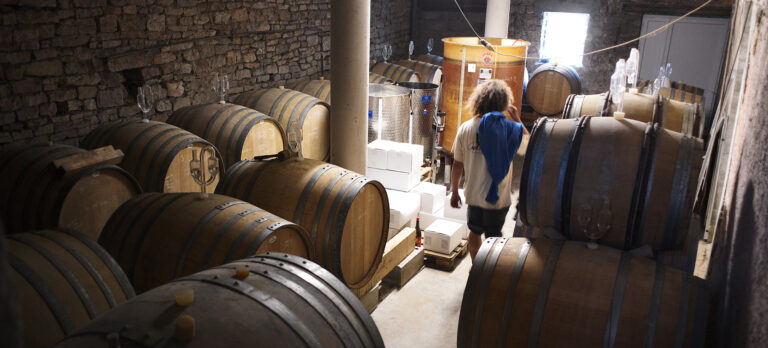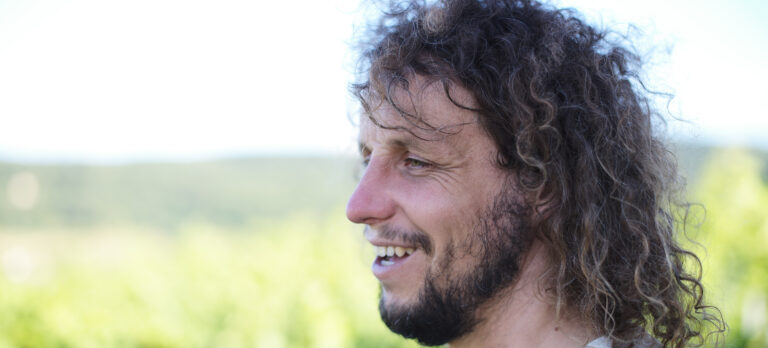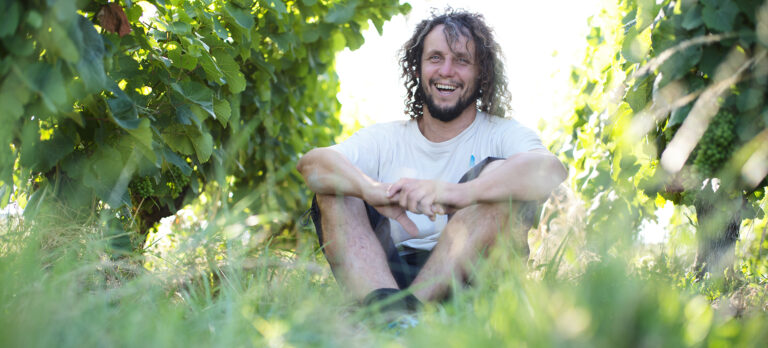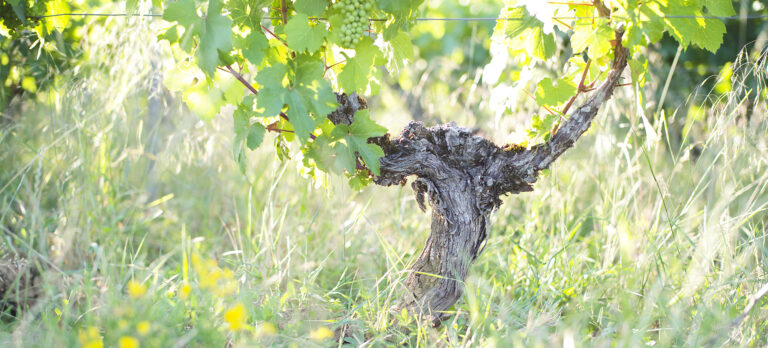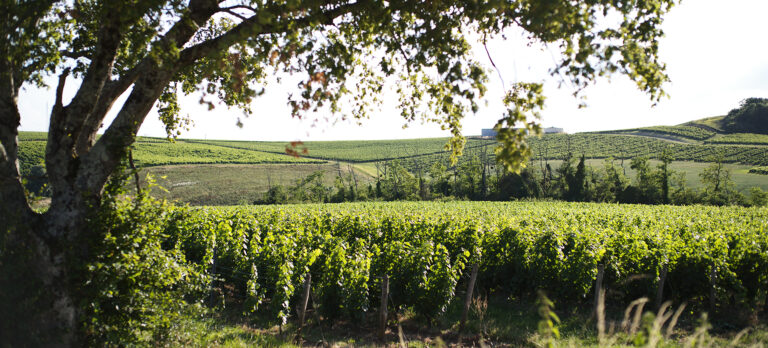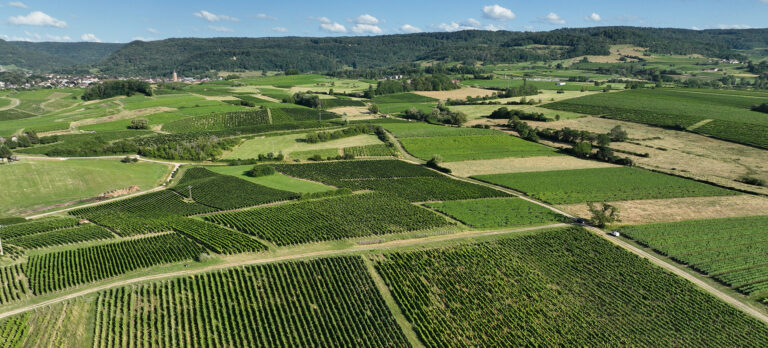The story of Julien Crinquand in many ways mirrors this modern-day Jura wine playbook. In the middle of the last century, Crinquand’s Grandfather acquired a 12 hectares farm in the hillsides outside of Arbois that had about 5 hA of vineyards. He continued to grow grapes which were sold to the local cooperative, but also produced other agricultural products as well. Having grown up with an agricultural background in the family, Julien in his early 20’s decided to go work with Fabrice Dodane at Domaine St Pierre, one of the early leaders of the Natural Wine scene in the Jura. Besides learning the craft of organic viticulture and careful vinifications with little or no added SO2, Dodane became a mentor of sorts, and helped Crinquand to launch his estate in 2019 using the family vineyards which had already been converted to organic viticulture in 2016.
Julien came to our attention over multiple tastings and dinners with his friend and mentor. He was already growing grapes and supplying them to Fabrice while honing his technique and style working in the cellars at Domaine Saint Pierre. They are close friends who on a moment’s notice, jump to help the other in times of need. We were extraordinarily impressed with Julien’s first vintages and after hounding him for several years, finally convinced him to sell us a few cases of wine.
Crinquand’s cellars are housed in an old barn on the property adorned with the basics for no-frills winemaking. On the main floor, there are fermentation tanks, a simple de-stemmer, and an old basket press. Downstairs there are older barrels for aging and a few small tanks. From these simple and humble surroundings, however, come a series of absolutely gorgeous, ethereal reds and whites!
Crinquand grows all of the main grape varieties from the region, Chardonnay and Savignin for whites, and Trousseau, Ploussard, and Pinot Noir for reds. These can be bottled either on their own, as single-vineyard and/or single-variety, or in blends, depending on the year and the growing conditions. For the whites, there can be sous voile (under the veil) wines as well as ouillé (topped up) wines. For all of them, they are bottled under the name (Les) Canons de Jean after Julien’s grandfather, Jean, whose likeness is depicted on the label in classic, crusty French paysanregalia. The term, Canons, here of course doesn’t mean “Cannons”, but is French vigneron slang for bottles, and ones that shoot down the throat with glee!
For the winemaking, all the wines are fermented naturally with indigenous yeasts. In general, the reds are de-stemmed, mostly for space in the tank Crinquand says, and then fermented and aged also in tank for about 12 months before bottling. For whites, the wines are fermented either in tank or in older used barrels, mostly demi-muids. They are then aged for a minimum of 12 months, though many are raised for a longer period, even 24 to 36 months prior to bottling. Although the labels say “Contains Sulfites”, the goal is to produce true Zero-Zero wines, with no added SO2 unless absolutely necessary. Certainly, of course, naturally occurring Sulphur can occur in the vineyards and end up in the wines at very low levels.
-Special thanks to Polaner Selections for winemaker notes.




